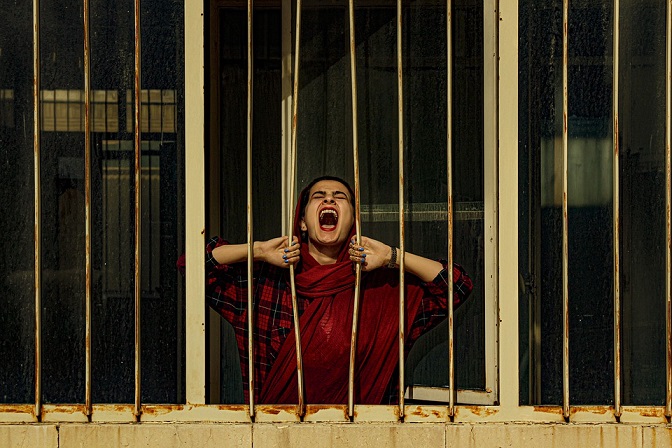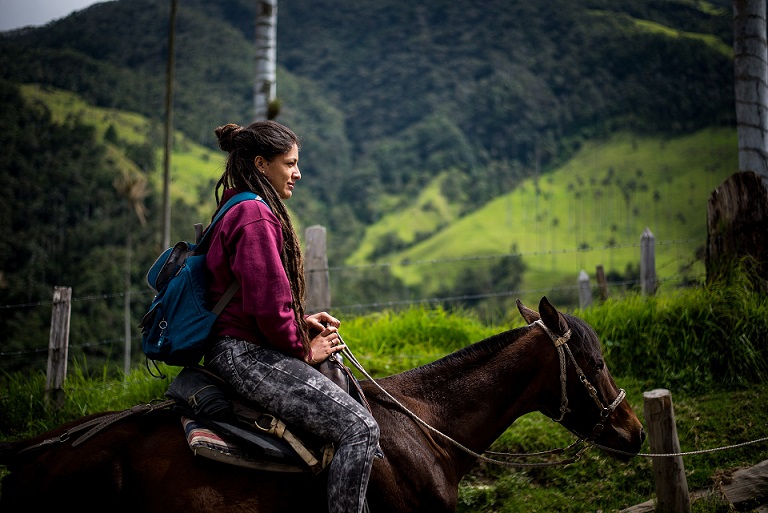The world was built on ‘machismo’ when it was said that God was a man. A concept from which Bogota never escaped: a warped city until it became a metropolis without a beginning or end, of which the Spanish conquistador arbitrarily changed the name, from Bacatá to Bogotá.
.
 Armando Orozco Tovar
Armando Orozco Tovar
.
Bogota wasn’t built to make life easier for the weak; the handicapped, the elderly, children or women, who had to replace their skirts for trousers with the aim of being able to jump, run, get up and climb all obstacles facing her in the city, because in her own clothing it was impossible to carry out such manly actions.
This city seems to have the sign “Men Only” upon its chest, like the signs on bathroom doors.
The Bogotan Mayor from the forties, fifties and the beginning of the sixties didn’t introduce cafes where women could enjoy refreshments, the famous cafes existing only for men, and these establishments only appeared around the year 1978. Nor were there bathrooms for women in other establishments.
Women in Colombian history have been made invisible and marginalised. They were not accepted in public universities, nor in important positions, given that they did not have the right to vote in elections. In terms of culture; art, literature and poetry, they remained, with a few exceptions, in complete destitution.
 Such is the case of the native painter Devora Arango, who was looked down on and attacked by the conservative politician Laureano Gómez. She locked herself in her house for years in order to work on her art. Only the ladies from the Bogotan society could attend art discussions in Bogota with the Argentinan Marta Traba, who arrived from Paris in the mid fifties to teach contemporary art.
Such is the case of the native painter Devora Arango, who was looked down on and attacked by the conservative politician Laureano Gómez. She locked herself in her house for years in order to work on her art. Only the ladies from the Bogotan society could attend art discussions in Bogota with the Argentinan Marta Traba, who arrived from Paris in the mid fifties to teach contemporary art.
A large number of the rural community from Boyaca came to Bogota in search of work, being employed as domestic workers in the homes of rich or wealthy families, suffering all types of abuse and violations at the hands of their employers.
Some ended their lives in brothels and never counted on the protection of the state. They were not given any benefits, nor were they made members of the Social Security (ISS).
A housewife ought to memorise the catechism of the father Astete. The do’s and don’ts of an obedient wife involved being resigned and compassionate, with an all-terrain capability for all trades.
She didn’t have the right to severance, nor social benefits, and much less to a pension, and had to silently resign herself to the constant abuse for her entire life.
 The severity of this abhorrent situation against women is that up to the present day the mistreatment of women hasn’t been completely overcome, as stressed in a Legal Medicine report some time ago: “Domestic violence is a growing phenomenon because between the year 2008 and 2009 reports rose from 71,632 to 75,490. Each year domestic violence claims the lives of more than 100 women…”
The severity of this abhorrent situation against women is that up to the present day the mistreatment of women hasn’t been completely overcome, as stressed in a Legal Medicine report some time ago: “Domestic violence is a growing phenomenon because between the year 2008 and 2009 reports rose from 71,632 to 75,490. Each year domestic violence claims the lives of more than 100 women…”
In the year 1967, for an interview with the magazine Vanities, Jorge Luis Borges, the Argentinian poet, said in reference to the situation of women: “When societies have more primitive features, the participation of women is decreased and more violent and discriminatory acts are committed against them. With the mistreatment of women it is demonstrated that they are the institutions that are in crisis.”
This is to say that in Colombia the institutions are and always have been in crisis, and some sports journalists, when referring to the violence against women, were mistaken when they wrote in defence of Bolillo Gómez: “The men who commit these violent acts against women are not killers but impassioned men, mad with love, who the majority of the time, lose all reason through jealousy…” (The Prisma’ memoirs. November, 2016)
(Translated by Eleanor Gooch – Email: Translated by Eleanor Gooch) – Photos: Pixabay












.jpg)












